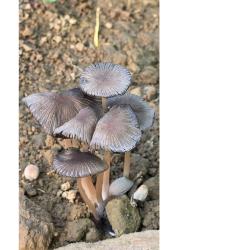Assam is one of the major producers of tea in India. Since its dicovery in the year 1823 Assam tea has traversed a long distance. Before the commercialization of tea began in Assam, the leaves of the tea plant were chewed by the local villagers with little or no processing. This still continues in certain inaccessible regions of southeastern Assam, as well as in neighboring regions of Myanmar. Robert Bruce is said to be the person who re-discovered the tea plant growing wild in the region at the behest of nobleman, Maniram Dewan and before his death in 1825, Robert passed on his knowledge to his brother Charles, who sent seeds of the plant to Calcutta in 1831.In 1833 the British lost monopoly of the Tea trade with China and the Tea Committee dispatched its secretary George Gordon to China to study the methods and begin tea plantation in Assam. He returned with the Chinese variety. Crossing with the Chinese tea plant led to Indian hybrid tea, which has great variability and vigour. This has been called the most important evolution of the commercial tea plant. In the meantime workers were also imported from Bihar and Orissa which would later form a significant demographic group in Assam. And the tea industry flourished in Assam.Today the scenario is different. By virtue of the cola wars and other beverages like coffee and the rising popularity of beer and alchoholic beverages among the new generation the tea industry is facing severe competition. Added with labour problems and subsequent lockouts the tea industry in Asam is facing a major crisis. However, there seems to be some proactive steps taken by the Government.The announcement by the Union Ministry of a revival package for the tea industry and the first round of loan agreement under the Special Purpose Tea Fund for Assam that was signed recently is a welcome move towards the development of this sector. The agreement saw 24 companies sign loan agreements worth Rs 48 crores, with the companies providing a component of Rs 12 crores. Also it is important that in order to overcome the problem of sick gardens replantation is necessary. The old and diseased areas which are beyond redemption should be uprooted. The removal of senile tea bushes would provide better yield. The loans would enabe the companies to go for replantation of 1,925 hectaews of land spread over 82 different gardens . Many tea gardens in Assam are in dire need of replantation as the ageing tea bushes are contributing to the decline of tea production. Mentionably, those gardens who have been unable to pay the salaries and wages of labourers including provident funds would not be able to avail the Special fund as they do not fulfil the eligibilty criteria for obtaining benefits under the fund. However it is alleged that the Goverbment of India has not paid the dues including the capital investment subsidy due to the gardens under the North East Industrial Policy. The repeated reminders to the government by the Tea Associations including the The Tea Association of India have fallen on deaf ears. Small tea growers have also been urged by the government to get registered with the tea board in order to avail benefits from Government incentives as a separate directorate has been set up exclusively for these growers. Another boost to the indutry would be the India International Tea Festival that is to be held this November that would popularise Assam tea in the international arena. Such constructive steps would definitely enable the tea sector to regain its earlier glory and contribute to the economic growth of the state.(Assam Times encourages its readers to contribute to the revival of the Tea Industry in Assam. If you have an idea or a thought but you do not know how to implement it, please convey to us and we shall ensure that it reaches the right forum)
- Add new comment
- 16756 reads










Comments
Pages
Add new comment